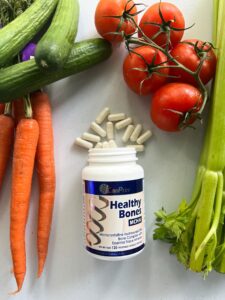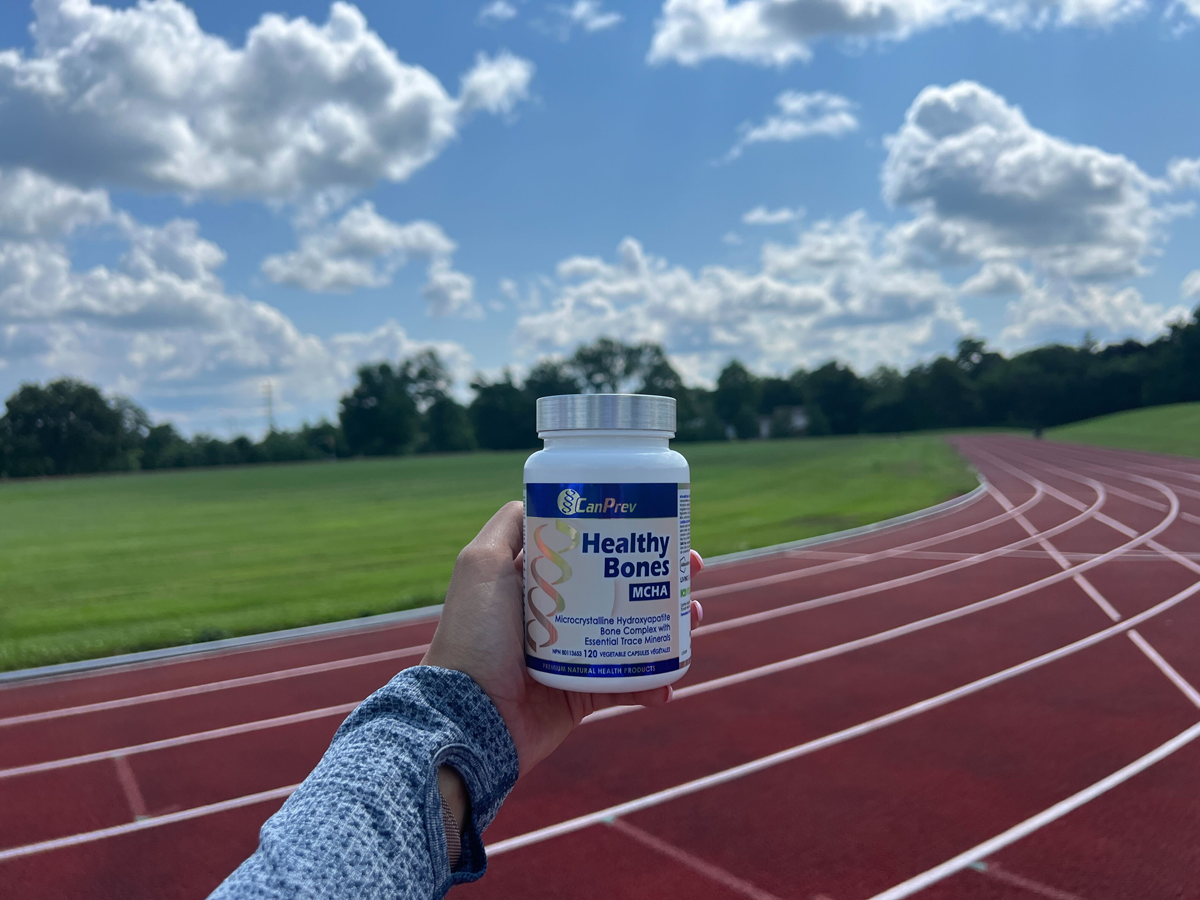From providing our bodies with structure to supporting our muscles and protecting our internal organs, our bones have a major role to play in our wellbeing. This means that our bones need plenty of nutrients and exercise to maintain their integrity and continue to effectively do their job.
Bone health may not be on your mind yet, but preventative care is crucial for such an important structural element of the body. Curious to learn more about what factors affect your bone health and when you should start thinking about supporting your bones? Read on to find out.
Why is bone health important?
The bones in our body are constantly changing from the day we’re born. As new bone forms, old bones are naturally broken down. This happens through a process called bone remodelling, which involves 3 main types of cells:
- Osteoblasts – Make new bone and help repair any damage or injury to bones
- Osteocytes – Mature bone cells that help support new bone formation
- Osteoclasts – Help break down old bone and sculpt and shape new bone
When we’re young, our bodies make new bone at a faster rate than breaking down old bone, which results in healthy bone mass or density. Bone mass tends to peak at around 25 to 30 years of age. While bone remodelling continues to happen within our bodies after this age, we start to lose more bone mass than we gain. This can result in conditions like osteoporosis, where bones become weak and brittle. That’s why continuously supporting our bone health is so crucial.
Factors that affect bone health
Although age plays a role in bone health, there are some other factors that impact it as well. Let’s discuss two important factors that can impact your bone health.
Low calcium levels
Our bones are made of protein, collagen, and minerals like calcium and phosphorus. In fact, calcium makes up the majority of our bones and it’s what provides our skeleton with strength and structure. Not getting enough calcium from your diet can affect the wellbeing of your bones. Without enough calcium, our bones would be weak and brittle. This is because low calcium levels can contribute to reduced bone density, early bone loss and an increased risk of fractures.
Lack of physical activity
Physical activity is essential for building strong bones when we’re younger and important for maintaining that bone strength as we age. People who are less active tend to have a higher risk of developing osteoporosis than those who are more active. This is because bone consists of living tissue (naturally regenerating tissue), which changes over time in response to the forces being placed upon it. So, when we regularly exercise, our bones adapt by building more bone, increasing bone density and ultimately supporting bone health.
When should you start thinking about bone health?
It’s never too early to start thinking about supporting your bones. Starting from an early age can give you the upper hand in combatting the risk of fractures later in life. But it’s important to take note that by the time most of us reach 40 years of age, we slowly begin to lose bone mass, making it that much more crucial to take bone health seriously. The good news is that bone loss can be slowed down with regular exercise, proper nutrition and supplemental support when needed.
Supplements to support bone health
It’s no surprise that calcium is an essential nutrient for your bones since it makes up the bulk of your bones. While milk is a common option to increase calcium levels, it may not be a staple in many diets. Here are a few other dietary sources that are rich in calcium:
- Seeds: Poppy seeds, sesame seeds, and chia seeds
- Fish: Sardines and salmon
- Leafy greens: collard greens, spinach, and kale

- Dairy products: Parmesan cheese and yogurt
Sometimes diet alone may not be enough to make sure your body has enough calcium. Turning to a supplement like Healthy Bones MCHA can help you double down on all the calcium your bones need to thrive. This formula features microcrystalline hydroxyapatite (MCHA), the calcium compound found naturally in bones and teeth that give them their structure. Containing naturally occurring calcium and phosphorous, MCHA has shown superior bioavailability and absorption for maximum bone-building capabilities. This formula also contains hydrolyzed collagen to stimulate enhanced collagen building at the bones, easy-to-absorb chelated minerals, and vitamins D3 and K2 to ensure these valuable nutrients reach the bone tissue where they’re needed.
Looking for a vegan alternative? Try our original Healthy Bones formula, a complete bone building blend featuring calcium, magnesium, vitamin D3, vitamin K2, and the most soluble and absorbable source of silicon, LIVING SILICA®. Silicon is often an overlooked mineral, but it works together with the other key minerals in this formula to help improve bone matrix quality.
Bones help us stand, walk, bend, and help us feel mobile in any way we desire. Thinking about supporting your bones can help you out in the later stages of life. With regular exercise, healthy nutrition and bone-supporting supplements, you can achieve optimal bone health.
Sources:
Bones, Muscles, and Joints
Bone health: Tips to keep your bones healthy
Calcium Intake in Bone Health: A Focus on Calcium-Rich Mineral Waters
Exercise and Bone Health
Healthy Bones at Every Age
Top 15 Calcium-Rich Foods (Many Are Nondairy)







Leave A Comment